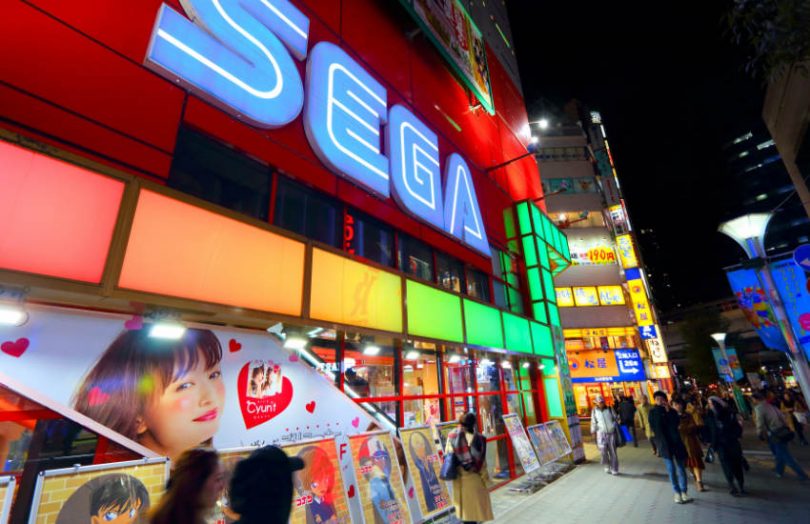In a management meeting at the end of 2021, gaming company SEGA’s leaders stated they are experimenting with non-fungible token (NFT) opportunities but want the focus to be beyond making money. No decisions have been made about whether they will adopt play-to-earn (P2E) models. When it comes to non-fungible token (NFT) initiatives, SEGA will prioritize partnering with experienced projects.
As an established gaming company, SEGA is acknowledging the influence NFTs have had over the last year. The fact that SEGA would prefer to work with an outside company rather than investing in their own NFT division highlights their cautious and conservative approach to entering the space.
In April 2021, SEGA announced a deal with Japanese blockchain firm Double Jump Tokyo to launch NFTs for Sonic the Hedgehog. After some negative consumer pushback, it’s unclear whether these have launched.
“In terms of NFT, we would like to try out various experiments and we have already started many different studies and considerations but nothing is decided at this point regarding P2E,” was the management response to a question about P2E. “We need to carefully assess many things such as how we can mitigate the negative elements, how much we can introduce this within the Japanese regulation, what will be accepted and what will not be by the users.”
Each incumbent gaming company seems to be taking a different approach to integrating NFTs, play-to-earn and blockchain. It’s possible to include in-game items as non-fungible tokens without impacting the gameplay. In contrast, P2E games usually involve both NFTs as well as gameplay specifically targeted at earning or ‘farming’.
Earlier NFT and P2E launches by incumbents could have the first mover advantage, but mistakes are inevitable. And those choosing to “wait and see”, such as SEGA, have the opportunity to learn from others.
Contrasting views of games publishers
For example, Take-Two seems to have a similar perception as SEGA in regards to NFTs. Its CEO, Strauss Zelnick, sees the potential for digital collectibles but also that they don’t necessarily need to be NFTs. He believes many current NFTs offer poor value and there is more potential in the technology that is not yet being exploited.
On the other hand, Ubisoft has been indirectly involved in the sector for years through its Entrepreneurs Lab and has directly initiated NFT projects over the course of the last year. But it only launched its first NFTs in a mainstream game at the beginning of December. While it seems to be a well considered set of in-game NFTs, consumers don’t seem too pleased with it. At one point, the video introducing the project had 582 likes versus almost 10,000 dislikes on Youtube. If this response is representative, and it may not be, then the majority of video game players might be against the idea of NFTs, never mind play-to-earn features.
Despite a less than ideal launch for Ubisoft, Square Enix, Zynga, and Electronic Arts are betting on the potential of growth in this gaming sector.
In an end-of-the-year letter, Square Enix’s President mentioned the potential for in-game tokens and play-to-earn economies. However, it seems that their products will make an effort to reward creators as opposed to just players, providing compensation for gamers who want to improve a game’s experience.
Zynga partnered with Forte, the blockchain solution targeting game publishers, to bring the company’s intellectual property such as Farmville, to blockchain games.
There are mixed messages from Xbox. Its leader is concerned that NFTs can be exploitive. However, at the end of last year, Microsoft’s M12 venture fund participated in a $27 million Series B round of funding for Palm NFT Studio. Separately, Xbox has been using blockchain to manage content rights and royalties since 2020.
In contrast to SEGA, Electronic Arts want an in-house team for NFTs and has advertised multiple job positions in the sector. The company’s CEO also referred to play-to-earn and NFT developments as the future of the gaming industry, although “it’s still early to figure out how that’s going to work”. Alongside Zynga and considering Ubisoft’s launch, EA is likely one of the leading gaming companies that is most optimistic about the future of blockchain components in the industry.
At the other end of the spectrum, gaming platform Steam banned all games that use blockchain, crypto, or NFTs. The official reason was that Steam did not allow for items that did not have real world value on its platform. Doubtless, the potential to sidestep platform payments and the proliferation of scams also played a role in the decision.
Meanwhile, the mainstream gaming press has been overwhelmingly negative about NFTs, although Gameindustry Biz recently softened its stance on play-to-earn.






